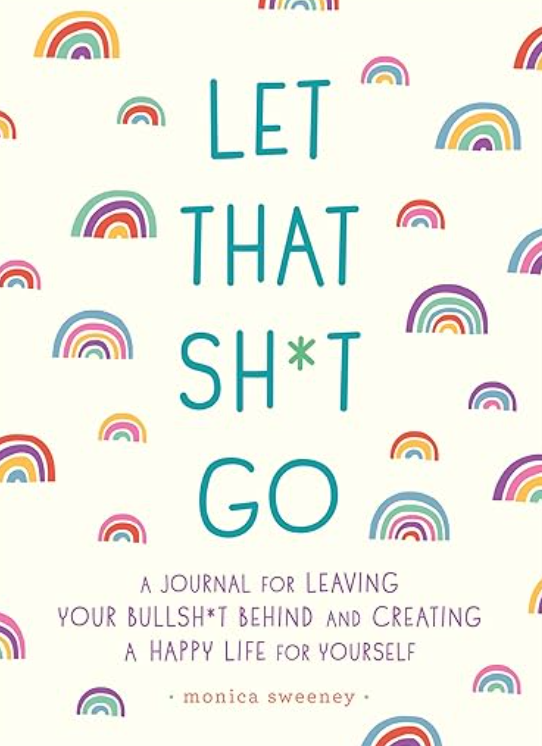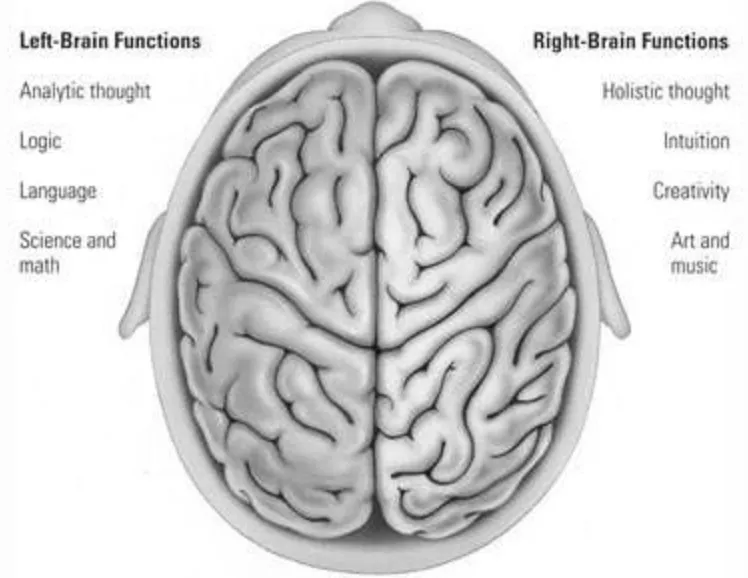There is hope, even when your brain tells you there isn’t.”
― John Green
I have been writing a journal for more than five years. This blog is a product of writing a daily journal.
One day, I was writing a journal on how to improve my reading habits or what helped me in the past to read more.
I started writi down the main steps in my journal and then shared them in the company’s Slack channel. Rest is just a history to keep documenting my journey.
Today’s article will be about journaling systematically and how journaling can help improve mental health in the long term.
What is a journal?
We all know that a personal journal is a record of our observations.
It’s the record of our feelings.
It’s the record of our reflections, especially what we experience daily.
In fact, it’s the best habit to talk to yourself to maximize your brain power.
How can we relate journaling to mental health?
Mental health is nothing but a state of mental well-being.
It means managing a stressful life.
It means realizing your abilities.
It means working well.
It means contributing to your community.
It’s time we started considering our mental well-being on the same level as our physical health.
After all, mind and body are connected.
Trauma anxiety and depression aren’t visually noticeable, but that doesn’t mean that they’re any less important than your physical health.
I’m not a therapist. I’m just someone who loves writing. I love to do experiments, and if I see any positive results, I share them with the readers.
Writing helped me to manage my stress levels.
I will explain what helped me and how I improved my mental health.
First, let’s talk about the benefits.
Many studies prove that daily journal writing can reduce stress and anxiety and help manage your trauma.
Here is a thing.
Many people think they are not a writer.
If you think you are not a writer, my friend, let me tell you:
The moment you write something, including a text message, you’re a writer.
I used to hate long walks and had no stamina or desire for it.
I preferred short walks. Once in a while.
One day, I was keen on walking for 45 minutes.
I walked out the door and jogged down the block, exhausted.
But I took the first step to become a pro-long walker.
Now, I advocate long walking as the best remedy for many things in life, especially stress management.
Long walks are the best way to improve your mental health.
Building a consistent writing habit is pretty close to long walks; take your first step.
You may never get published, but that’s not the point.
The desired outcome is building the routine. It’s a private success that benefits your well-being. You don’t need to share your journal with the world.
It’s you against yourself.
So, before we put pen to paper, we found strong reasons why you should journal for mental health.
Then, we adopted the identity of a writer who can express themselves on paper.
As with physical exercise, the next step is prioritizing it on your schedule.
You need to invest time regularly to see the mental benefits of journal writing.
What is more important than your health and well-being?
Even if you are responsible for the care of others, you cannot give them the best of your ability if you are struggling with your issues.
By not investing in your well-being, you are harming those who depend on you.
With this in mind, find 10–20 minutes to disconnect from the outside and connect with yourself.
Journaling is the way to go.
Just find a quiet corner around the home where you can be alone and hear your thoughts. Wake up 10–20 minutes earlier, or go to bed 10–20 minutes later.
Do not take the phone to a bedroom, or at least put the phone on Do Not Disturb.
Establish boundaries with family, friends, and co-workers. This is your time to build consistency and see the benefits of this routine. Schedule these 10–20 minute sessions at least five times in the next ten days.
Why ten days?
You will still get five days if you miss a day or two. Develop a habit of always catching your writing routine for less than two days in a row.
I tried my brain; if I missed it a day or two, that’s fine. After all, I am a human, not a robot. I am allowed to miss a day. But don’t schedule a missed day. lol
How Does Reading Affect Your Brain
What Happens When You Start Reading Every Day
Ask yourself why I have such strong feelings about this. How does it make me feel? What would I have to change to feel differently? You can collect lists of things that concern you.
Don’t worry about how insignificant the item may be; write it down if it crosses your mind.
Circle the items that you have the ability to change. This will help your mind focus on matters within your sphere of influence.
Use your imagination to solve problems by writing.
What if scenarios so much anxiety comes from the fear of the unknown? Take a problem and imagine all the possible outcomes.
This will prepare you mentally for the best-case, worst-case scenarios, and everything between.
Journaling can also be a way to track habits like physical exercise, gratitude, nutrition, sleep, and media consumption. Keeping a log of these habits helps evaluate their effects on well-being.
Habit tracking can be as simple as marking a calendar, although there are plenty of examples of bullet journal habit trackers online.
To find what works for you, part of being open and honest with yourself is recognizing what Swiss psychologist Carl Young describes as the shadow self.
This part of our personality consists of traits that are disapproved by society. Expressing your whole self in a journal will lead to a greater understanding of your mind, particularly the suppressed unconscious parts, to shine a light on these areas in your mind.
Identify thoughts and situations that make you feel uncomfortable. Prose your mind with curiosity to learn more about yourself while withholding judgment. Your journal is a judgment-free zone.
Some folks may need a direct question to answer. They could start writing prompts, which can be a helpful icebreaker.
Here are a few examples.
What is your greatest worry?
When do you tend to feel most overwhelmed?
When do you feel more stressed?
What would you do with your life if all of your basic needs were covered?
Write down a couple of things you are grateful for.
Who are the people that help you be your best self?
When have you felt the happiest and most fulfilled in life?
Use these examples to springboard into deeper introspection and a fuller understanding of who you are.
If you need help with a severe mental illness or aren’t sure whether you need professional help, please see a doctor.
The bottom line
Journaling for mental health can reduce stress and anxiety.
It has the power to improve memory and strengthen confidence.
It’s important to prioritize time for journaling and develop a consistent habit of merely 10–20 minutes a day, even if you don’t consider yourself a writer.
Writing prompts and habit tracking can be helpful tools.
Journaling helps me to introspect at a deeper level. It’s like talking to my doubts and worries.
Daily journal writing has numerous mental health benefits, including stress reduction and memory improvement.
Building a consistent journaling habit is about routine and self-identification as a writer rather than focusing on the result or getting published.
Making journaling a priority on your schedule is crucial to experiencing the mental benefits.
Writing about topics that create a strong emotional response and using prompts can help explore feelings, make positive changes, and gain a deeper understanding of oneself.
Habit tracking, such as tracking exercise, gratitude, and sleep, can provide valuable insights into how these habits affect mental well-being.
Book recommendation:
Let That Sh*t Go: A Journal for Leaving Your Bullsh*t Behind and Creating a Happy Life

As a new reader, please check my holistic health, productivity, and well-being stories reflecting my reviews, observations, and 30+ days of experiments (29 completed so far) to build a sustainable healthy lifestyle.
My Supplements Stack
Many readers asked if I consume any supplements. Yes, I do. However, I consider supplements as add-ons, not solid meal replacements.
I prefer to eat whole foods and avoid canned ones. I also believe that recent food quality has lacked proper nutrition, so I take supplements to fill the gap.
I only consume proven and continuously consumed supplements by scientists like Andrew Huberman or experimental gentleman Tim Ferris. Supplements will help you enhance your overall life.
| What I Take & Why | Supplement Name – Optimize your health journey |
| Sleep Supplements Preferred to take 30 – 60 minutes before bedtime. | Magnesium L-Threonate –> 144 mg Apigenin –> 50 mg L-Theanine –> 200 mg |
| Supplements for Brain Performance | Creatine –> low dose (5 grams) taken daily Omega-3 Fatty Acids –> 2-3 of EPA daily1 Phenylethylamine (PEA) |
| Anti-inflammatory Supplements | Turmeric / Curcumin with Black Pepper -> Joint Support N-Acetyl Cysteine (NAC) –> Support immune function Methylsulfonylmethane (MSM) –> for treating injuries Athletic Greens –> as “nutritional insurance” |
| Physical Performance + Recovery Supplements | Grass Fed Whey Protein –> Joint health and recovery Alpha-GPC –> Before a workout L-Tyrosine –> To enhance exercise performance Branched-Chain Amino Acids –> to enhance muscle building & recovery L-Glutamine –> for gut health and muscle recovery Zinc –> for exercise recovery (muscle damage) |
| Immune Support Supplements | L-Lysine –> to combat viral infections and cold sores Apple Cider Vinegar –> to boost immunity Medicinal Mushrooms –> to enhance immune function |




